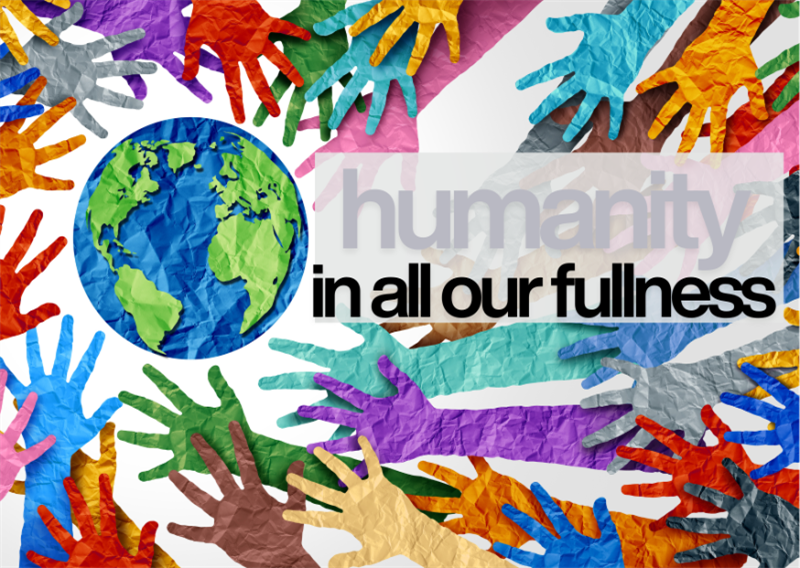5th October 2025

Humanity in all our Fullness
The news at the moment is full of polarisation and division. In many places, political discourse is hardening - it's as much about who we are not, who we are against, as about who we are and what we believe in. This social context, fuelled by social media and the 24-hour news cycle, makes it feel unsafe to stand out from the crowd. We seek tribes to belong to - until a challenge to our opinions feels like a challenge to our very identity, and so we bed down in our echo chambers, amongst those who support or amplify views we already hold.
The Church has never been called to be a tribe of like-minded people with all the same opinions. Right from the beginning, we see in Acts, the small but growing band of believers are challenged to step outside their tribe, outside their comfort zones and embrace the whole of God's saving work. Philip, in Acts 8, is sent to an Ethiopian eunuch. Peter, in Acts 10, is sent to Cornelius, a Gentile. Meanwhile, Paul's letters demonstrate that churches throughout the Roman Empire are made up from the beginning of a wide range of people - Jews and Gentiles, slaves and free, women and men... This diversity can cause tensions. In Corinth, Paul calls out those wealthy people who are eating too much at the Lord's supper while the poorer people go hungry. And in Acts 15, a council of church leaders in Jerusalem deliberates on the question of admitting Gentiles to the Church.
There is much that can be said about this - but here, I just note that, in Acts 15, the early church leaders settled on the side of inclusion. That the Holy Spirit was at work among the Gentile believers was seen as a sign confirming the scriptural witness of God's promise to Abraham that, through him, "all nations" would be blessed.
We at HTSJ rejoice in being a diverse community. We celebrate the fact that women and men from different races and backgrounds, children of all ages, people with a variety of different needs, people who are single, married, divorced, separated or widowed, people in different economic circumstances can all find a place within our church community. Our vision statement says that "we welcome all with the love we have received from Jesus". But we recognise that diversity can be difficult. We have to work at getting along with people who are different from us. Sometimes, their views or behaviours may challenge us. Sometimes, like the early church in Acts 15, we have to wrestle with what God may be saying through them.
Through October and November, we will celebrate our diversity. We will celebrate the fullness to which Jesus has called us, by considering race, sexuality, age, disability, social circumstances and, simply, how we get along together. Some services may include some different and unexpected elements. You may not agree with everything - that's fine. You may not like everything - that's fine. But, in a polarised social context, perhaps one of the gifts that the Church, imperfect though we are, can offer is the gift of radical hospitality, radical acceptance of the other. We will be unpacking this idea of radical hospitality in this column over the coming weeks.
